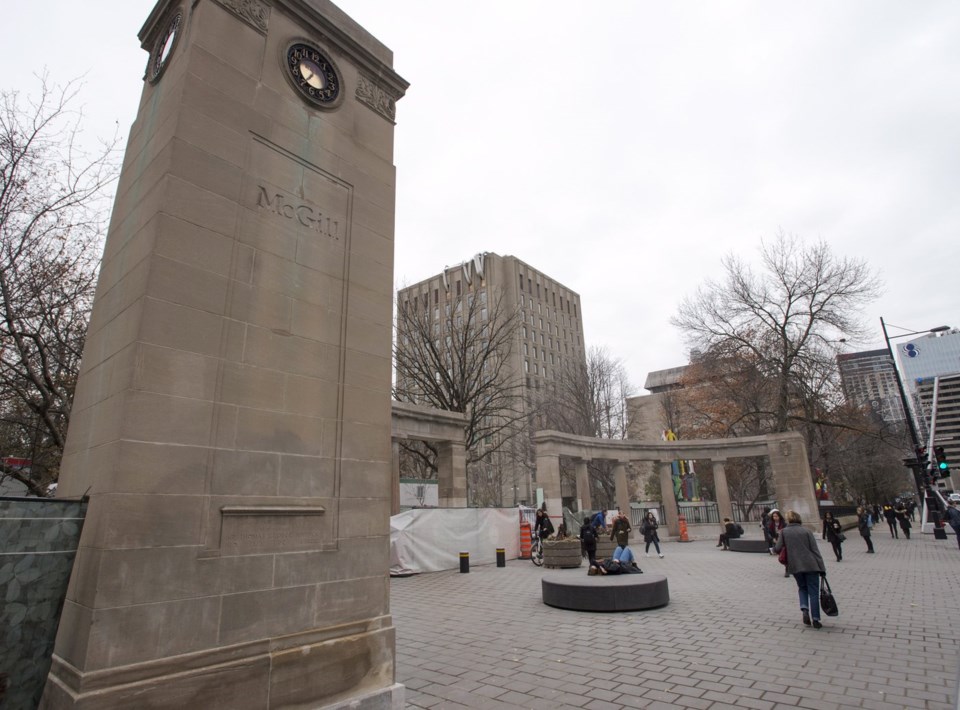OTTAWA — Canadian universities are being forced to tighten their financial belts as they struggle with plummeting enrolment from international students who pay higher tuitions.
Universities Canada says "inadequate" provincial operating grants are also a factor in ongoing budget challenges for post-secondary institutions. President Gabriel Miller says tuition and fees from international student enrolment had provided a funding stopgap, but that is now being challenged due changing rules for international students, including a reduction in permits.
"We've been dealt a bad hand on international students, but the real problem is that governments have been gambling with the future of higher (education) for more than a decade," Miller said.
"What we're now seeing is an opportunity gap that will start to grow where future students who want to go to study in universities are not going to have access to as many spaces. They're going to be forced to be in bigger classes, because the deal between government and families that build our universities isn't being held up."
Miller said it's "striking" how uniform budgetary issues are across the country.
McGill University is projecting a $45 million deficit for the next fiscal year, due in part to declining international student enrolment.
The University of Waterloo is looking to cut spending by $42 million this year as it faces a $75 million deficit.
The University of Regina is raising tuition by four per cent with "flat" domestic enrolment and a "significant" drop in international student enrolment contributing to budget challenges.
"We are seeing a severe loss of talent, which is greater than anything most people anticipated. And so that obviously means loss of revenue and loss of opportunity for Canadian students because those international students have been helping to pay the bills in our universities," Miller said.
Mary Feltham, chair of the Canadian Federation of Students, said that they're receiving reports of program cuts and reduced on-campus services.
She said the reduction of international student enrolment is creating a domino effect that extends off campus.
"Now we're seeing a decline in services offered for everyone, a decline in jobs, a decline in different types of programs, which is impacting the ability for people to get an education and then contribute back to their province and country," Feltham said.
The government's target for study permits this year is 437,000 nationwide, a 10 per cent reduction over 2024.
Ottawa first introduced it's cap on study permits in 2024, which it says contributed to a roughly 40 per cent reduction in international students and "eased" the rental housing market in areas with high student populations.
Tuition for these students varies by school, but international fees are typically four to five times what domestic students pay.
An emailed statement from a spokeswoman for Immigration Minister Lena Metlege Diab said that Canada values the "significant" benefits international students bring to the country but the program faced sustainability challenges.
The statement adds that the new minister looks forward to meeting with stakeholders to address concerns and ensure Canada continues to attract top talent.
Miller said Universities Canada has requested a meeting with the minister. He said the cap itself isn't as big an issue as requesting stability in the rules for international students so Canada can be seen as attractive.
Feltham said that the CFS is working on lobby efforts to all levels of government to improve post-secondary funding and they'd been warning about these coming issues "for years."
"It's just really frustrating to see because international students have often been used as a scapegoat for these problems or been used as cash cows," Feltham said. "So universities and colleges have really relied on them to be a source of income, which is also not appropriate, and this is why we've been asking for governments to properly fund these institutions."
This report by The Canadian Press was first published May 24, 2025
David Baxter, The Canadian Press




